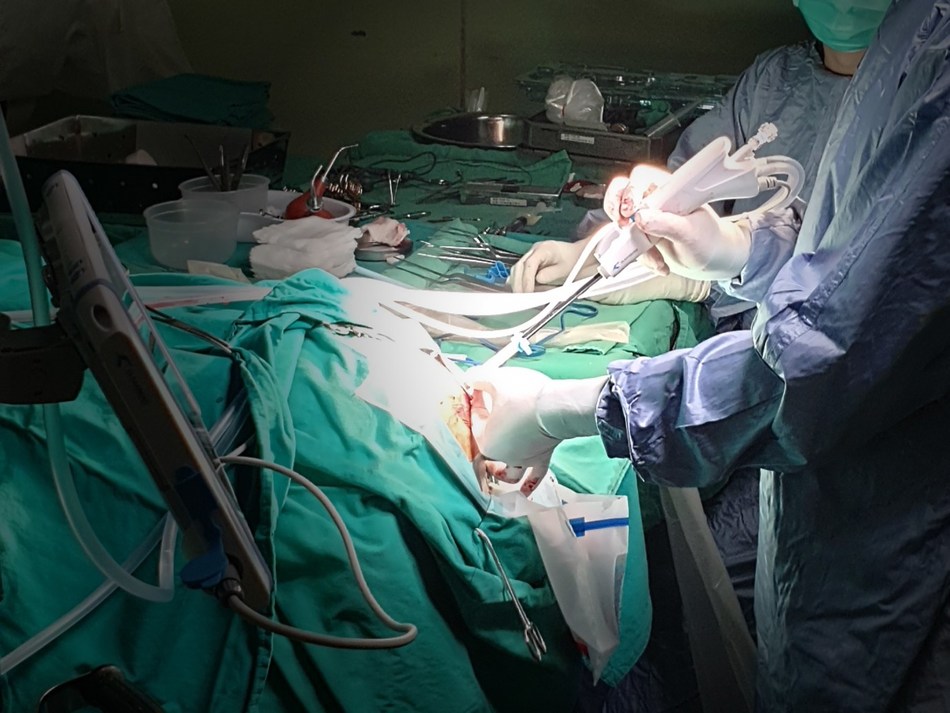
ClearMind Biomedical has received FDA clearance for its novel neuroendoscope, the Axonpen System, for illumination and visualization of intracranial tissue and fluids, and the controlled aspiration of tissue and/or fluid during surgery.
Requiring only a narrow channel of 6.5mm through the skull for insertion into the brain, the steerable Axonpen combines excellent tissue visualization, suction, and irrigation functions. It has a working channel for use with accessory surgical devices. The Axonpen System is the first neuroendoscope to integrate all these capabilities into one, simple to use, minimally invasive operating platform.
The Axonpen System supports a clinical shift in the minimally invasive removal of unwanted intracranial fluid and tissue, as commonly manifested in cases of intracerebral hemorrhage (ICH) and subdural hematomas.
“One Doctor, One Hour” was the objective driving the ClearMind founders to create the Axonpen System. Meeting this objective allows a single surgeon to complete some critical surgeries in one hour, even at small-scale regional hospitals. More importantly, access to faster neurosurgical interventions after suffering a hemorrhagic stroke or other fluid producing injury has the potential to improve patient outcomes, including survival.
“Up until the introduction of the Axonpen System, there has been no other integrated neuroevacuation device on the market for minimally invasive neurosurgery,” explains Carrey Yang, ClearMind’s CEO. “Often, expensive and complex equipment is necessary to perform the surgery, requiring that patients be transferred to a large medical center, delaying the moment surgery can begin.”
Yang also pointed out examples where the Axonpen may provide benefit: “The most critical period in treating ICH is the first 24 hours, underscoring the importance of swift and effective emergency treatment.” He went on to comment that apart from the speediness of treatment, the Axonpen’s low rebleeding risk is an equally important advantage.
The first post-market human trial of the Axonpen has commenced. The trial, which will consist of 30 subjects, is focused on procedural safety and generating the correlation between the use of the Axonpen System and functional independence measures. US human trials are planned for the 3rd quarter of 2021.
Source: Company Press Release






